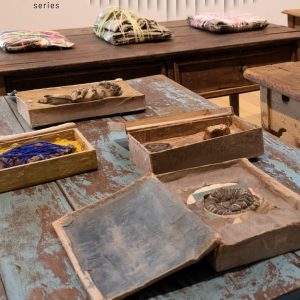
Hear Their Stories: Unearthing the Soul of the American South Through Oral Histories
The American South. A land steeped in history, myth, and a tapestry of interwoven narratives. For too long, the dominant historical accounts have presented a singular, often sanitized version of the past. But beneath the surface, a multitude of voices yearn to be heard – voices that offer a richer, more nuanced understanding of the region’s complex heritage. “Hear Their Stories: Oral Histories from the American South” offers precisely that: a powerful, intimate exploration of Southern life through the firsthand accounts of its people.
This collection isn’t just a historical record; it’s a journey into the heart and soul of a region forever shaped by its contradictions. It’s a vibrant mosaic of personal experiences, weaving together tales of resilience, hardship, joy, and loss. These aren’t just names and dates; they are stories of individuals who defied expectations, challenged norms, and shaped the South into what it is today.
The project’s strength lies in its diversity. It embraces the voices of all those who call the South home: farmers, factory workers, activists, artists, veterans, and everyday citizens. Their stories span generations, intersecting with pivotal moments in American history – from the Civil War and Reconstruction to the Civil Rights Movement and beyond. We hear the echoes of slavery’s brutal legacy, the fight for equality, the struggles of economic hardship, and the triumphs of perseverance. These oral histories unearth untold stories, challenging preconceived notions and offering a counter-narrative to the officially sanctioned versions of the past.
A Tapestry of Voices: Exploring Key Themes
“Hear Their Stories” is organized thematically, allowing readers to delve into specific aspects of Southern life and experience. These themes are not mutually exclusive; rather, they intertwine and overlap, reflecting the intricate nature of Southern history and identity.
| Theme | Description | Example Story Snippet |
|---|---|---|
| The Legacy of Slavery | The enduring impact of slavery on individuals, families, and communities. | “My grandmother always told me stories…whispers of freedom songs and coded messages…” |
| Rural Life & Agriculture | The rhythms of rural life, the struggles of farming, and the deep connection to the land. | “The land…it fed us, clothed us, but it also demanded everything we had…” |
| Industrialization & Urbanization | The transformations brought about by industrialization and the growth of Southern cities. | “The mills…they offered work, but at a cost. We traded our health for a living…” |
| Civil Rights & Activism | The fight for racial equality, the challenges faced by activists, and the ongoing struggle for justice. | “We marched, we sang, we prayed…we believed in a better tomorrow…” |
| Family & Community | The importance of family, community bonds, and the resilience of Southern communities. | “We looked out for each other. That’s how we survived…” |
The Power of Oral History: Preserving the Past for Future Generations
The beauty of oral history lies in its immediacy, its intimacy, and its ability to connect us to the human experience across time. These aren’t cold, detached accounts; they are filled with emotion, vulnerability, and a palpable sense of lived experience. By preserving these stories, “Hear Their Stories” not only sheds light on the past but also serves as a powerful reminder of the importance of listening to marginalized voices and amplifying their narratives.
The project’s impact extends beyond simply documenting the past. It serves as a catalyst for dialogue, encouraging reflection on the enduring legacies of history and the ongoing struggle for social justice. These stories offer a potent antidote to historical amnesia, prompting us to confront the complexities of our past and to build a more just and equitable future.
More Than Just Stories: A Call to Action
“Hear Their Stories” is not just a collection of narratives; it’s a call to action. It urges us to engage with the past in a more meaningful way, to listen to the voices that have been silenced for too long, and to recognize the power of personal narratives in shaping our understanding of the world. It invites readers to consider their own stories, their own connections to the past, and their role in shaping a better future. By amplifying the voices of the American South, this collection reminds us that history is not a monolithic entity, but a vibrant tapestry woven from the threads of countless individual experiences. It is a testament to the resilience of the human spirit and a powerful reminder of the enduring legacy of the American South.

Additional Information
Expanding the Narrative: A Deeper Dive into “Hear Their Stories: Oral Histories from the American South”
“Hear Their Stories: Oral Histories from the American South” (assuming this refers to a collection or project, as no specific source is provided) offers invaluable insights into the region’s complex history, but a deeper analysis reveals several key areas worthy of exploration. The project’s value hinges on its ability to fill gaps in traditional historical accounts, offer nuanced perspectives, and illuminate the lived experiences often missing from formal records. However, several critical considerations warrant attention.
1. The Power of Voice and Subjectivity: Oral histories, by their nature, are subjective narratives. While this presents challenges in terms of historical accuracy, it also unlocks a crucial layer of understanding rarely accessible through official documents. For example, a narrative focusing on the sharecropping system, recounted by a former sharecropper, might highlight the exploitative practices in ways official records, potentially skewed by landowners’ perspectives, might not. This subjectivity, however, necessitates careful analysis by researchers. Triangulating information from multiple sources, comparing accounts, and acknowledging biases are essential for generating credible historical interpretations.
2. Representational Challenges and the Issue of Voice: The project’s success depends critically on the diversity of voices included. Did it represent the full spectrum of Southern experiences? Were marginalized communities – including women, African Americans, Indigenous peoples, and LGBTQ+ individuals – adequately represented, or did certain voices dominate the narrative? A lack of representation skews the overall understanding and reinforces existing biases. For instance, an oral history collection focusing solely on wealthy white landowners’ accounts would provide a drastically incomplete and misleading picture of Southern life. Analysis should critically assess the project’s inclusivity and identify potential gaps in representation.
3. Contextualization and Historical Analysis: Simply collecting oral histories isn’t enough. The narratives must be meticulously contextualized within the broader historical, social, economic, and political landscapes of the American South. Analyzing the stories through the lens of relevant historical events – Reconstruction, Jim Crow, the Civil Rights Movement, etc. – adds depth and meaning. For example, an account of a Black family’s migration from the rural South to a northern city during the Great Migration should be analyzed in the context of economic hardship, racial violence, and the search for opportunity.
4. The Role of Memory and the Construction of Narrative: Oral histories are shaped by the speaker’s memories, which are inherently selective and prone to distortions over time. The act of recalling and recounting experiences involves a process of reconstruction, influenced by personal biases, cultural norms, and the passage of time. Researchers must be aware of this phenomenon, using techniques like comparing multiple accounts and exploring potential inaccuracies. For instance, remembering specific dates or details might be unreliable, but the emotional impact of an event is often more vividly recalled.
5. Ethical Considerations: The ethical implications of collecting and disseminating oral histories are significant. Informed consent, confidentiality, and the potential for emotional distress should be paramount. Researchers must carefully consider the potential impact of their work on the individuals being interviewed and their communities. The anonymization of participants might be necessary to protect their privacy, but this must be balanced against the potential loss of context and richness that comes with identifying individuals.
In conclusion, while “Hear Their Stories: Oral Histories from the American South” (hypothetical project) offers a unique window into the past, a critical and nuanced analysis is crucial. By examining the representational challenges, contextualizing the narratives within their historical setting, acknowledging the subjective nature of memory, and upholding ethical standards, researchers can unlock the full potential of this valuable resource and create a more complete and accurate understanding of the complex tapestry of Southern life. Further research might involve analyzing the methodology used to collect and curate the stories, comparing the findings with existing historical scholarship, and exploring how these oral histories contribute to wider discussions about memory, identity, and the ongoing legacies of the past.






